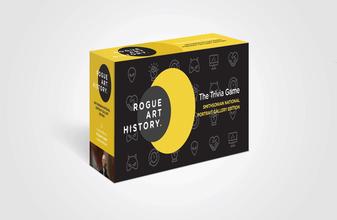More about Rutherford B. Hayes
- All
- Info
- Shop

Contributor
Olin Levi Warner's Rutherford B. Hayes represents a moment in the history of the U.S., the Presidential election of 1876, which is far less interesting to most people than the latest episode of 90 Day Fiancé.
This is partly because we do not tend to study the political history of money in school, as the securing of the U.S. dollar was the main issue of the election. Warner's plaster sculpture, donated to the Smithsonian 98 years after its release, is clearly a propaganda commission.
In the quirky world of collectors, limited-edition runs of production are especially alluring and financially valuable, even, and sometimes especially, when manufacturers make mistakes. I did not collect Magic: The Gathering cards as a kid, but I remember the hushed tones my classmates used to describe the virtues of the rare "Black Lotus" card. In most cases, limited editions occur because investors assume there is a low consumer demand for the product: this is the case with Rutherford B. Hayes.
As of this writing, my own facial hair is similar to that of President Hayes, but I readily admit that, in the context of the U.S., it does not give off that "strong decisive man" aura which is supposedly the desire of voters, especially in those days. Not that bearded men aren't "strong," whatever that really means. But if Hayes had kept shaving fully, as he did before fighting the Confederates, his statue might have reached the level of mass production Warner wanted. Despite the opinions of historians, Hayes wasn't a bad president, but he was a "rebound relationship" for the United States, exhausted after the Civil War, nervous about what whiteness and blackness might mean once the Black descendants of slaves obtained not only legal emancipation but economic power, and wanting to ensure, as Hayes temporarily did, that the U.S. dollar was secured by, and exchangeable for, precious metals, which were still considered inherently valuable. These were called "specie payments," and, sometimes, you could trade your greenbacks for them. Nowadays, we seem to have accepted the idea that money is a measure of our trust for one another, and a bunch of numbers on a computer screen somewhere, secured by nothing except a handshake and a grin.
Sources
- Fairfield, Joshua A. T. Owned: Property, Privacy, and the New Digital Serfdom. Cambridge: Cambridge University Press, 2017.
- Norton, Mary Beth, et al. A People and a Nation: A History of the United States. Boston: Cengage, 2014.
- Otis, John. "The Place Where Rutherford B. Hayes Is A Really Big Deal." NPR, Oct. 30, 2014, https://www.npr.org/sections/parallels/2014/10/30/360126710/the-place-w….
- "Rutherford B. Hayes." Smithsonian, https://npg.si.edu/object/npg_NPG.76.27?destination=portraits/search%3F…












